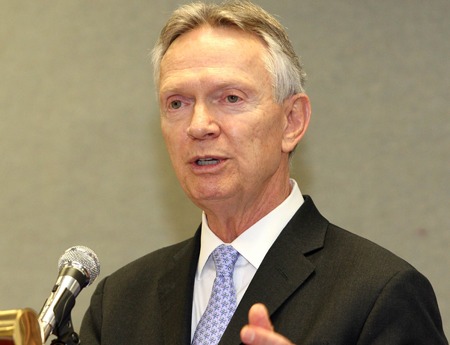Exclusivity Rules Fate Unclear

The smarter way to stay on top of broadcasting and cable industry. Sign up below
You are now subscribed
Your newsletter sign-up was successful
Related: Presidential Candidates Turn Night Owls
Broadcasters appear to be getting some traction in their effort to head off FCC chairman Tom Wheeler’s proposal to eliminate the syndicated exclusivity and network nonduplication rules.
They are doing so by tying the rules to the compulsory license, which allows multichannel video programming distributors to deliver the syndicated and network content on broadcast stations without separately negotiating for it.
FCC sources signal the commissioners are still vetting the arguments, including not getting rid of the rules without also scrapping the compulsory license, and that the item may not get voted on anytime soon, with a “yes” vote far from a slam dunk. And at press-time, no votes had been cast on the six-week-old item, according to a source familiar with its status.
Wheeler in early August circulated an order that would get rid of the rules, which prevent pay-TV providers from importing duplicative syndicated or network programming into local TV markets. Cable operators have been pushing for the regs’ elimination so they could potentially offer alternatives during retrans impasses or blackouts, calling them another thumb on the scale for broadcasters in retrans negotiations.
In a blog post, Wheeler wrote: “In this item, the commission takes its thumb off the scales and leaves the scope of such exclusivity to be decided by the parties, as we did in the Sports Blackout Order last year. In so doing, the commission would take 50-year-old rules off our books that have been rendered unnecessary by today’s marketplace.”
Since then, broadcasters have been fighting back hard, flying in from across the country— with arrangements made by the National Association of Broadcasters—to make their case, backed by the Motion Picture Association of America, whose members include some co-owned studio arms of big broadcasters.
The smarter way to stay on top of broadcasting and cable industry. Sign up below
The FCC’s Media Bureau was pushing back last week, which appeared to confirm that Wheeler still had some convincing to do.
In what one former top FCC official called an unusual step, FCC Media Bureau Chief Bill Lake took to the blogosphere last week to argue that the linkage between the exclusivity rules and the compulsory license was overblown. One FCC source said they thought that step signaled the item was in some trouble, saying there was a definite lack of enthusiasm for it.
Still At Play
“It’s time for the commission to end its intrusion into this aspect of the commercial marketplace and leave it to TV networks, syndicators and broadcast stations to implement the exclusive distribution rights that they choose to create,” Lake wrote of the rules. “The compulsory licenses, and the rationale on which they are based, provide no reason to retain the exclusivity rules, as geographic exclusivity can be well-protected by contract, with the backup of the retransmission consent regime,” he said, echoing Wheeler.
Lake added that there was a time and a place for the syndicated exclusivity and network nonduplication rules, but added: “That time has passed.”
Taking issue was Preston Padden, now executive director of the Expanding Opportunities for Broadcasters Coalition, who helped get the exclusivity rules reinstated by the FCC in the late 1980s when he headed the Association of Independent Television Stations.
Speaking as that former INTV exec, not for EOBC, Padden said: “The FCC is on record as favoring repeal of compulsory licenses. Second, in the absence of FCC exclusivity rules, broadcasters trying to protect their exclusive rights would be confronted with claims that the compulsory licenses grant cable/ satellite operators conflicting rights. By the time those claims are adjudicated, retrans fights would be over, to the detriment of local stations.”
The commissioners are under no timetable for voting on the item.
Contributing editor John Eggerton has been an editor and/or writer on media regulation, legislation and policy for over four decades, including covering the FCC, FTC, Congress, the major media trade associations, and the federal courts. In addition to Multichannel News and Broadcasting + Cable, his work has appeared in Radio World, TV Technology, TV Fax, This Week in Consumer Electronics, Variety and the Encyclopedia Britannica.

